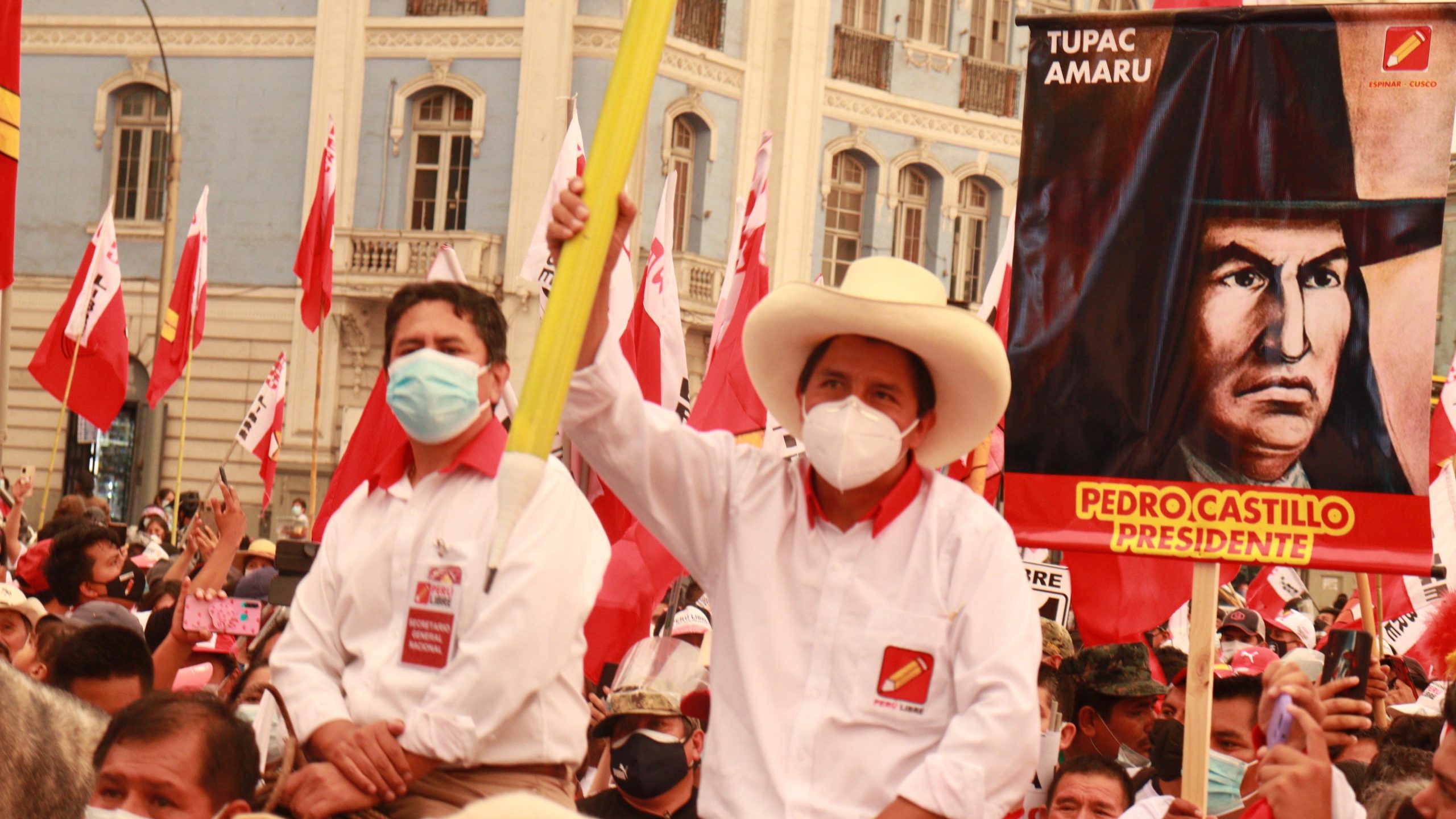In the decade of the 1990s, the dictatorship of Alberto Fujimori achieved several of its key objectives through a combination of repression, human rights violations, and corruption that permeated through the Peruvian state and society. These “achievements” included the military defeat of the subversive armed groups and the imposition of a Constitution and an ultra neoliberal economic model which have allowed for the unlimited accumulation by the wealthy at the expense of the precarious majorities and those who exist at the juncture of consumption and credit, also known as the “middle class.”
Parallelly, or rather part and parcel of this process was also the decomposition of the historical Peruvian left. This left fell into a deep process of fragmentation (up until now), and was disoriented in light of the new realities, especially the loss of its massive and organic links with the popular sectors and grassroot work in the territories. It could never rebuild and recover these links. That is why, electoral alternatives in opposition to Peruvian neoliberal right arose from other sectors and almost new groups, as Ollanta Humala’s nationalism, who betrayed his promises once he took office. Or like Verónika Mendoza, emerged as a political reference after she broke up with Humala’s betrayal, and her wider base is in the illustrated, cult, progressive and environmentalist middle class.
Today, as a real surprise, without anyone aware of it, an authentically popular left finally arose in Peru, after Pedro Castillo ran for president of Perú. Proof of this is precisely the surprise and invisibility with which he won these elections in the first round, due to the fact that the approach of political analysts, mass media and even the middle-class left militancy, neither expected nor liked him.
All of them are uncomfortable with this political current that, by their own hands and without permission, “big data” and “tweeter” strategies, comes from Andean territories, always despised under racism and classism. Castillo hails from the urban and peasant patrols movement (Rondas Campesinas), part of the Peruvian Chapter of Alba Movimientos, and from the teachers’ union sector. These sectors in recent years, have been the most brave and critical to neoliberal abandonment of education, and have the ability to engage with the populations in the poor hills of Lima, because they speak the same language and are moved by the same abandonments, forgetfulness, discontent and hope.
It is a popular left, authentically autonomous, without complexes and that does not seek or accept blackmail from the right. For example, the 52-year-old candidate Pedro Castillo, who himself is a public school teacher and peasant patrolman (rondero campesino), publicly pointed out that there is no dictatorship in Venezuela and that Venezuelan people, without external interference, must solve its problems themselves. He disproved this myth that in order to “become an acceptable left” one must join the right in their slandering of Venezuela. In another example, Castillo pointed out that if the Congress, which will be highly fragmented and with a majority of right-wing parties, does not want to support the call for a Constituent Assembly, he will use his presidential powers to shut it down. This transmits a message of political will and courage that makes it credible and gives guarantees to join, without the fear of indecisions and later betrayals.
Obviously, he has mistakes and limitations. Is he not human? These can be serious and must be changed, such as his rejection of an analysis of gender and the rights of the sexual diverse community. This also reflects the limitations of its broad popular base that suffers the impact of prejudices and ignorance. There are also complaints of corruption related to some leaders or candidates of this movement, a real problem for all political force in Peru. However, they are, in any case, minimal when looking at the industrial corruption within right-wing parties.
But, as the universal Cuban, José Martí, said, “the sun has spots. The ungrateful ones see only the stains. The grateful ones, the light”. And there is no doubt that this popular light will open roads and new scenarios, regardless of what happens in the second round and before to a Peruvian neoliberalism which is irretrievably falling apart. Furthermore, if he reaches the government, in the second electoral round on Sunday, June 6, it is highly probable that he will not even be able to finish his term, because the tendencies towards social crisis and political point to structural and irreversible decomposition.
But that will be another story. Now it is time to add all the efforts to this new popular left that the Peruvian people have finally given birth to.
Ricardo Jiménez A. is a Chilean sociologist living in Lima, Peru.
Original piece in Spanish. Translation: José Carlos Llerena





